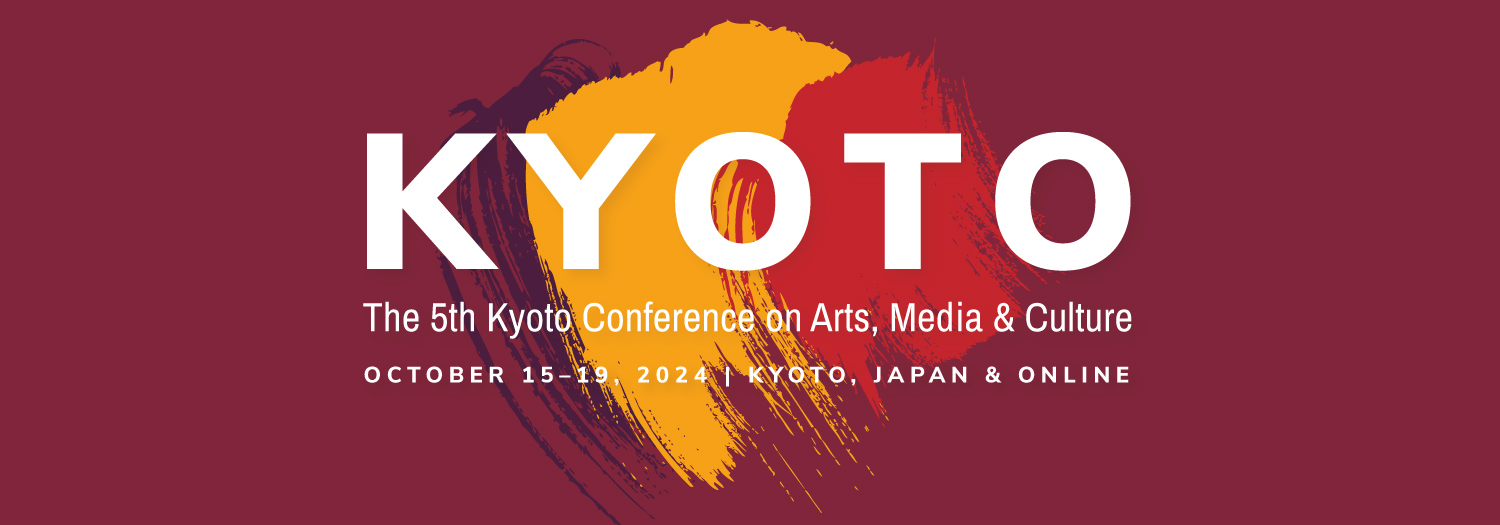
Conference Outline
14:30-16:30: Conference Cultural Tour | Kiyomizudera
This is a ticketed event
Conference Venue: Kyoto Research Park
12:00-13:00: Conference Check-in | 4F Foyer Area
13:00-13:05: Announcements | Science Hall (4F)
13:05-13:20: Welcome Address & Recognition of IAFOR Scholarship Winners
Joseph Haldane, The International Academic Forum (IAFOR), Japan
13:20-13:50: Keynote Presentation | Science Hall (4F)
13:50-13:55: Short Break
13:55-14:25: Keynote Presentation | Science Hall (4F)
14:25-14:40: Conference Photograph
14:40-15:00: Coffee Break
15:00-15:30: Featured Interview | Science Hall (4F)
15:30-15:35: Short Break
15:35-16:20: Featured Panel Presentation | Science Hall (4F)
16:20-16:25: Short Break
16:25-16:55: Keynote Presentation | Science Hall (4F)
16:55-17:00: Short Break
17:00-18:00: Conference Poster Session & Welcome Reception | Atrium (1F)
19:00-21:00: Conference Dinner | Yachiyo Nanzen-ji
This is a ticketed event
Conference Venue: Kyoto Research Park
09:00-09:45: Conference Check-in | 4F Foyer
09:45-11:25: Onsite Parallel Session 1
11:25-11:40: Coffee Break
11:40-12:55: Onsite Parallel Session 2
12:55-14:00: Lunch Break
14:00-15:40: Onsite Parallel Session 3
15:40-15:55: Coffee Break
15:55-17:30: Onsite Parallel Session 4
Conference Venue: Kyoto Research Park
08:45-09:30: Conference Check-in | 4F Foyer
09:15-10:55: Onsite Parallel Session 1
10:55-11:10: Coffee Break
11:10-12:25: Onsite Parallel Session 2
12:25-13:25: Lunch Break
13:25-15:05: Onsite Parallel Session 3
15:05-15:20: Coffee Break
15:20-17:00: Onsite Parallel Session 4
17:00-17:15: Onsite Conference Closing Session | Room G
Conference Venue: Online
07:55-08:00: Message from IAFOR
08:00-09:40: Online Parallel Presentation Session 1
09:40-09:55: Break
09:55-11:10: Online Parallel Presentation Session 2
11:10-11:25: Break
11:25-13:05: Online Parallel Presentation Session 3
13:05-13:20: Break
13:20-15:00: Online Parallel Presentation Session 4
15:00-15:10: Message from IAFOR
Accepted Presentations
One of the greatest strengths of IAFOR’s international conferences is their international and intercultural diversity. As of July 11, 2024, KAMC2024 has received over 360 submissions from 43 countries and territories - including: Australia, Canada, India, Indonesia, Japan, Malaysia, Philippines, Taiwan, the United States, and Vietnam.
Featured Presentations
To be announced
Conference Programme
The draft version of the Conference Programme will be available online on September 02, 2024. All registered delegates will be notified of this publication by email.
*Please be aware that the above schedule may be subject to change.
Important Information Emails
All registered attendees will receive an Important Information email and updates in the run-up to the conference. Please check your email inbox for something from "iafor.org". If you can not find these emails in your normal inbox, it is worth checking in your spam or junk mail folders as many programs filter out emails this way. If these did end up in one of these folders, please add the address to your acceptable senders' folder by whatever method your email program can do this.
Previous Programming
View details of programming for past KAMC conferences via the links below.
